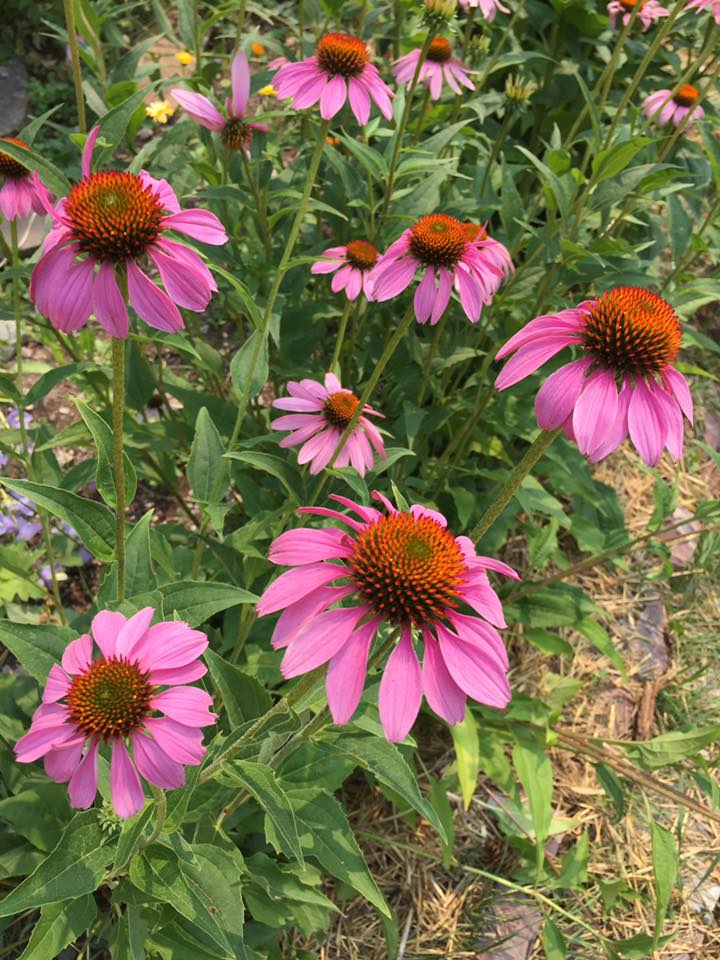Bonus Episode August 2022 Earwigs are Beneficial Insects for your Garden

I thought you might like to hear my recent article in the TV News:
August 2022
It’s hot, is it not?! But that’s summer, and at least our nights drop down to cool things off. Besides you can always go jump in a lake, we certainly have lots of them around the Tobacco Valley. For me, getting to run through the sprinkler while I water the lawn is still pretty exciting as we didn’t have running water for a long time. And watering the garden is the word of the day! WATER, WATER, WATER. I don’t feel like we can keep our garden/lawn hydrated.
We are finally starting to harvest more and more each day even though it seems late in the season. We had a delicious dinner the other night of fresh potatoes, string beans and cherry tomatoes! Our beets are getting bigger and the beet greens we thin between rows are delicious to sauté with some mini beets mixed in. I also like to blanch the greens to freeze for winter when I’m jonesing for some deep leafy vegetables and I can’t bring myself to buy them in the produce aisle.
One of the most common questions I get about the garden is what to do about pests?
This year it seems like there is an overwhelming amount of earwigs AKA pincher bugs everywhere, which used to really creep me out but I have since learned are some of the best insects to have in your garden as they eat a lot of the bad bugs that destroy your plants. Contrary to popular folk tales they do not crawl in your ears and lay eggs in your brain.
They do like cool moist places to hang out and are generally only active at night. They are attracted to bright lights so even though they are nocturnal they are often found underneath pots on porches that are lit up in the evenings. Earwigs tend to hang by themselves, not belonging to a colony so infestations are usually not a problem. If you find them indoors, they’ll appreciate being moved back outside where they can act like a sanitation engineer clearing your garden of pests and disease.
Earwigs are not a threat to humans and won’t bite or sting you. Their pincers are for eating prey and repelling predators. Although they have small wings, they don’t really fly as much as glide from a high spot.
Another benefit is they attract birds, lizards and frogs to your garden who enjoy eating these power predators. Besides gobbling the pests in your garden earwigs also enjoy feasting on dead and decaying leaves helping your plants look and feel healthier.
Another important garden tip I have learned over the years is to spend a lot of time observing your plots. When you see something like bug bites on your leaves turn them over in the early morning and see if there’s a caterpillar there that needs removing.
If you do get an aphid infestation, see if you don’t get a beneficial insect that will eat the aphids and then move on. Many people post photos of tiny black wasps eating the tasty white bugs and want to kill them instead of letting them do their job. Often if you just wait a few days the whole problem will take care of itself. You might find ladybugs or lacewings lured in by the aphids who also disappear when their food supply is gone. Beware, ladybug babies look like weird black bugs you might be afraid are eating your plants but they actually are really good for your garden.
Here’s to the beneficial bugs of summer!
True Leaf Market is wanting to sponsor the GREEN Organic Garden Podcast and is giving a discount code for listeners to get 15% off cover crop seeds: GOG15.
- These codes all have the following characteristics:
- 15% off cover crop products. i.e. orders for other items besides our cover crops won’t receive a discount.
- Expires end of December • 2022
- Limit one use per customer.

